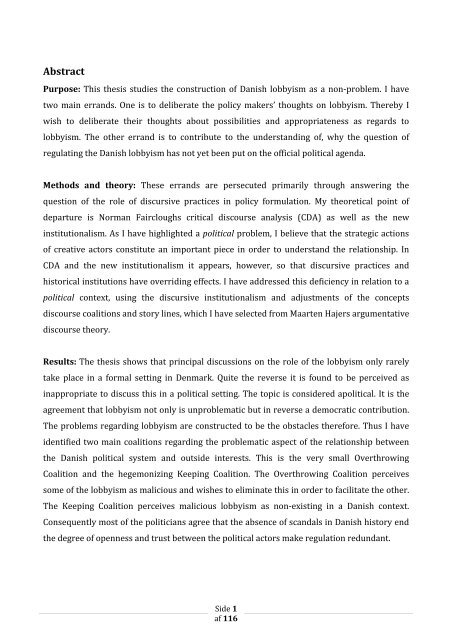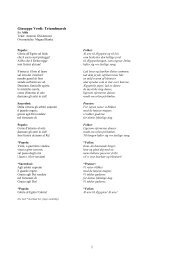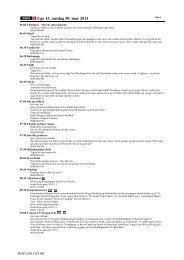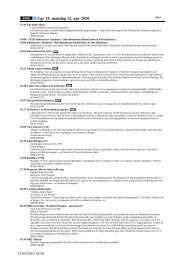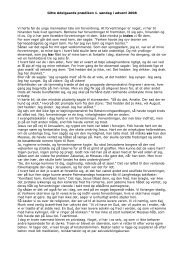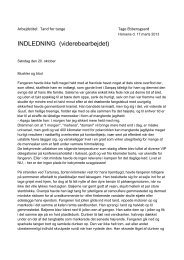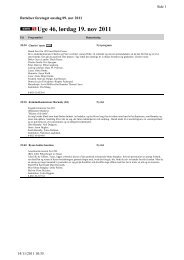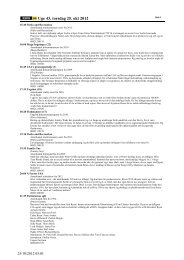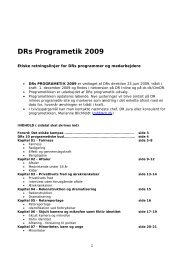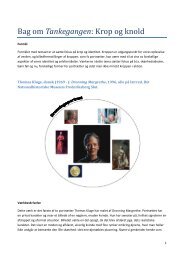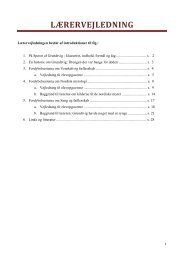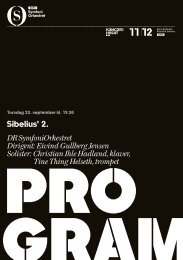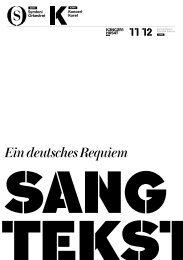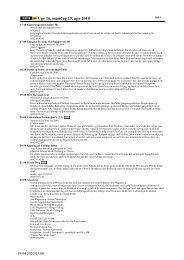Lobbyismen – et apolitisk emne - Dr
Lobbyismen – et apolitisk emne - Dr
Lobbyismen – et apolitisk emne - Dr
Create successful ePaper yourself
Turn your PDF publications into a flip-book with our unique Google optimized e-Paper software.
Abstract<br />
Purpose: This thesis studies the construction of Danish lobbyism as a non-problem. I have<br />
two main errands. One is to deliberate the policy makers’ thoughts on lobbyism. Thereby I<br />
wish to deliberate their thoughts about possibilities and appropriateness as regards to<br />
lobbyism. The other errand is to contribute to the understanding of, why the question of<br />
regulating the Danish lobbyism has not y<strong>et</strong> been put on the official political agenda.<br />
M<strong>et</strong>hods and theory: These errands are persecuted primarily through answering the<br />
question of the role of discursive practices in policy formulation. My theor<strong>et</strong>ical point of<br />
departure is Norman Faircloughs critical discourse analysis (CDA) as well as the new<br />
institutionalism. As I have highlighted a political problem, I believe that the strategic actions<br />
of creative actors constitute an important piece in order to understand the relationship. In<br />
CDA and the new institutionalism it appears, however, so that discursive practices and<br />
historical institutions have overriding effects. I have addressed this deficiency in relation to a<br />
political context, using the discursive institutionalism and adjustments of the concepts<br />
discourse coalitions and story lines, which I have selected from Maarten Hajers argumentative<br />
discourse theory.<br />
Results: The thesis shows that principal discussions on the role of the lobbyism only rarely<br />
take place in a formal s<strong>et</strong>ting in Denmark. Quite the reverse it is found to be perceived as<br />
inappropriate to discuss this in a political s<strong>et</strong>ting. The topic is considered apolitical. It is the<br />
agreement that lobbyism not only is unproblematic but in reverse a democratic contribution.<br />
The problems regarding lobbyism are constructed to be the obstacles therefore. Thus I have<br />
identified two main coalitions regarding the problematic aspect of the relationship b<strong>et</strong>ween<br />
the Danish political system and outside interests. This is the very small Overthrowing<br />
Coalition and the hegemonizing Keeping Coalition. The Overthrowing Coalition perceives<br />
some of the lobbyism as malicious and wishes to eliminate this in order to facilitate the other.<br />
The Keeping Coalition perceives malicious lobbyism as non-existing in a Danish context.<br />
Consequently most of the politicians agree that the absence of scandals in Danish history end<br />
the degree of openness and trust b<strong>et</strong>ween the political actors make regulation redundant.<br />
Side 1<br />
af 116


